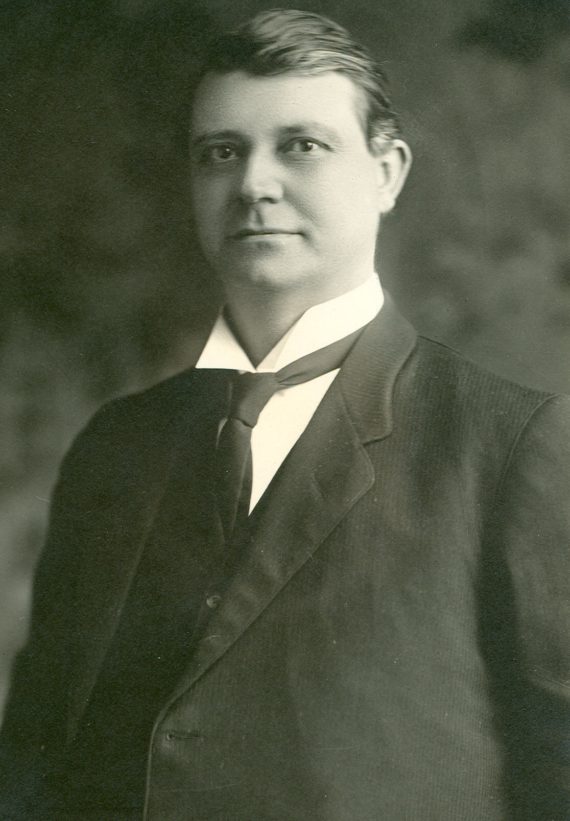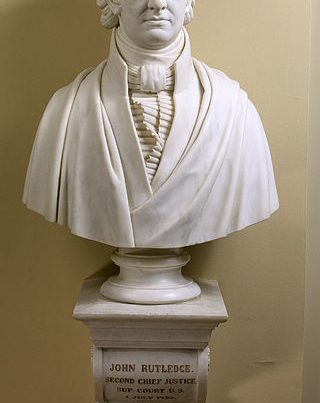Editor’s Note: On 5 April 1917, Representative Claude Kitchin of North Carolina rose and delivered a manly speech in opposition to Woodrow Wilson’s call for a declaration of war against Germany. He was one of five Southern members of Congress who opposed the war resolution. Kitchin prophetically predicted that if she became involved in the war, America would be forced to make European problems American problems, and he understood that his opposition would not be well received by the general public. Regardless, Kitchin approached the topic with a firm understanding of a traditional American foreign policy: entangling alliances with none, peaceful relations with all.
Mr. Chairman, in view of the many assumptions of loyalty and patriotism on the part of some of those who favor the resolution, and insinuations by them of cowardice and disloyalty on the part of those who oppose it, offshoots, doubtless, of a passionate moment, let me at once remind the House that it takes neither moral nor physical courage to declare a war for others to fight. [Applause.] It is evidence of neither loyalty nor patriotism for one to urge others to get into a war when he knows that he himself is going to keep out.
The depth of my sorrow, the intensity of my distress in contemplating the measureless step proposed, God only knows. The right and necessity of this momentous resolution are addressed to the Individual judgment of the Members of the House. Too grave is the responsibility for anyone to permit another to stand sponsor for his conscience.
Profoundly impressed with the gravity of the situation, appreciating to the fullest the penalties which a war-mad moment will impose, my conscience and judgment, after mature thought and fervent prayer for rightful guidance, have marked out clearly the path of my duty, and I have made up my mind to walk it, if I go barefooted and alone. [Applause.] I have come to the undoubting conclusion that I should vote against this resolution. [Applause.] If I had a single doubt, I would with profoundest pleasure resolve it in favor of the view of the administration and of a large majority of my colleagues, who have so recently honored me with their confidence. I know that I shall never criticize any Member for advocating this resolution. I concede—I feel—that he casts his vote In accordance with sincere conviction. I know, too, that for my vote I shall be not only criticized, but denounced from one end of the country to the other. The whole yelping pack of detainers and revelers in the Nation will at once be set upon my heels.
My friends, I can not leave my children lands and riches— I can not leave them fame—but I can leave them the name of an ancestor, who, mattering not the consequences to himself, never dared to hesitate to do his duty as God gave him to see it. [Applause.]
Half the civilized world is now a slaughterhouse for human beings. This Nation is the last hope of peace on earth, good will toward men. I am unwilling for my country by statutory command to pull up the last anchor of peace in the world and extinguish during the long night of a world-wide war the only remaining star of hope for Christendom. I am unwilling by my vote to-day for this Nation to throw away the only remaining compass to which the world can look for guidance in the paths of right and truth, of justice and humanity, and to leave only force and blood to chart hereafter the path of mankind to tread.
By passage of this resolution we enter the war, and the universe becomes one vast drama of horrors and blood—one boundless stage upon which will play all the evil spirits of earth and hell. All the demons of inhumanity will be let loose for a rampage throughout the world. Whatever be the future, whatever be the rewards or penalties of this Nation’s step, I shall always believe that we could and ought to have kept out of this war.
Great Britain every day, every hour, for two years has violated American rights on the seas. We have persistently protested. She has denied us not only entrance into the ports of the central powers but has closed to us by force the ports of neutrals. She has unlawfully seized our ships and our cargoes. She has rifled our mails. She has declared a war zone sufficiently large to cover all the ports of her enemy. She made the entire North Sea a military area—strewed it with hidden mines and told the neutral nations of the world to stay out or be blown up. We protested. No American ship was sunk, no American life was destroyed, because we submitted and did not go in. We kept out of war. We sacrificed no honor. We surrendered permanently no essential rights. We knew that these acts of Great Britain, though in plain violation of international law and of our rights on the seas, were not aimed at us. They were directed at her enemy. They were inspired by military necessity. Rather than plunge this country into war, we were willing to forego for the time our rights. I approved that course then; I approve it now.
Germany declares a war zone sufficiently large to cover the ports of her enemy. She infests it with submarines and warns the neutral world to stay out, though in plain violation of our rights and of international law. We know that these acts are aimed not directly at us but intended to injure and cripple her enemy, with which she is in a death struggle.
We refuse to yield; we refuse to forego our rights for the time. We insist upon going in.
In my judgment, we could keep out of the war with Germany as we kept out of the war with Great Britain, by keeping our ships and our citizens out of the war zone of Germany as we did out of the war zone of Great Britain. And we would sacrifice no more honor, surrender no more rights in the one case than In the other. Or we could resort to armed neutrality, which the President recently urged and for which I voted on March 1.
But we are told that Germany has destroyed American lives while Great Britain destroyed only property. Great Britain destroyed no American lives, because this Nation kept her ships and her citizens out of her war zone which she sowed with hidden mines.
But are we quite sure that the real reason for war with Germany is the destruction of lives as distinguished from property, that to avenge the killing of innocent Americans and to protect American lives war becomes a duty?
Mexican bandits raided American towns, shot to death sleeping men, women, and children in their own homes. We did not go to war to avenge these deaths. We sent an armed expedition into Mexico to hunt down and punish the bandits. Away out from the American border the soldiers of Carranza, of the Mexican Government, which we had recognized, met our soldiers, shot the American flag from the hands of an American soldier, shot down to the death our soldiers, and Carranza, instead of disavowing the dastardly act, defiantly approved and ratified it. Yet we did not go to war to avenge the destruction of American lives and the insult and assault on the American flag. We were willing to forego our rights rather than plunge this country into war while half the world was in conflagration. I approved that course then; I approve it now.
Why can we not, why should we not, forego for the time being the violation of our rights by Germany, and do as we did with Great Britain, do as we did with Mexico, and thus save the universe from being wrapped in the flames of war.
I have hoped and prayed that God would forbid our country going into war with another for doing that which perhaps under the same circumstances we ourselves would do.
Are we quite sure that in a war with Germany or Japan, if our fleet was bottled up, helpless, and our ships of commerce had been swept from the seas, all our ports closed by the enemy’s fleet, imports of fuel and food and clothing for our people and ammunition for our soldiers were denied, with our very life trembling in the balance, we would not, in the last struggle for existence, strike our enemy with the only weapon of the sea remaining, though in violation of international law? Would one contend that under the circumstances our submarine commanders should permit the landing at the ports of the enemy arms and ammunition with which to shoot down our brave American boys when they had it in their power to prevent it? Would we demand of our submarine commanders that they give the benefit of the doubt to questions of international law rather than to the safety of our country and the lives of our soldiers?
War upon the part of a nation is sometimes necessary and imperative. But here no invasion is threatened. Not a foot of our territory is demanded or coveted. No essential honor is required to be sacrificed. No fundamental right is asked to be permanently yielded or suspended. No national policy is contested. No part of our sovereignty is questioned. Here the overt act. ruthless and brutal though it be, is not aimed directly at us. The purpose of the proposed enemy is not our injury, either in property or life. The whole aim and purpose and effort are directed at a powerful enemy with which she is in a life and death struggle.
The causes for which we are now asked to declare war could have been given with equal—yea, greater—force 30 days or 10 days after the first step taken by the German Army In its march toward Paris. They existed then.
This House and the country should thoroughly understand that we are asked to declare war not to protect alone American lives and American rights on the high seas. We are to make the cause of Great Britain, France, and Russia, right or wrong, our cause. We are to make their quarrel, right or wrong, our quarrel. We are to help fight out, with all the resources in men, money, and credit of the Government and its people a difference between the belligerents of Europe to which we were and are utter strangers. Nothing in that cause, nothing in that quarrel, has or does involve a moral or equitable or material interest in or obligation of our Government or our people.
To this program every impulse of patriotism, every sense of right, every feeling of humanity, every sentiment of loyalty, every obligation of duty within me combine in forbidding my consent until the Government and its people, through its rightful and constitutional voice—the Congress of the United States— have clearly spoken, in the passage of such a resolution as is now before the House. Then and then only will it become the patriotic duty of each Member of the House and Senate to merge his individual judgment and conviction into those so declared of his country, as it will become the duty of every American, in and out of Congress, to make the judgment and conviction of his country thus written into statute his judgment and conviction. [Applause.] The voice of law will command, and a patriotic duty will demand, loyal and earnest and active submission and obedience. Until then each should have and does have the inherent right, and it is his bounden duty to himself and to truth, to vote his conviction.
I can conceive of a brave, loyal, devoted son of a father who contemplates a personal difficulty with another begging and persuading him to refrain, even condemning, and protesting in vain against his proposed step, but when the final word is spoken and blows are about to be given, taking off his coat and struggling with all of his soul and might in defense of that father.
When this Nation, as It doubtless will to-day, speaks the final word through the Congress, I trust I will be found in relation with my Government and my country emulating the example of that son. [Applause.]







‘Hear this now, O foolish people,
Without [a]understanding,
Who have eyes and see not,
And who have ears and hear not:
Jeremiah 5:21
Very grateful to know of this courageous speech!!
Mel Gibson got drunk and spoke the truth, that it is Jews who start all the wars. Gentiles are just the cannon fodder. We’re cannon fodder in the middle east for a Greater Israel but are not allowed to defend our own borders. A little cancer cell can bring down the greatest man.
My cousin is on a submarine but is not allowed to tell us where he is. There are military ships in hot spots and they are not there to fire upon an enemy but to be a target in order that those in control of our government can have an excuse to have more wars.
What would the south have to do today in order to secede? The entire world is desperate to get away from yankees and Jews.
If we could secede, we could help countries like Mexico and those in South America change their government and institutions and then they could be as wealthy as Canada and the US, or at least as wealthy as we used to before we got Jewed.
Barbara, Your post is racist and hurts the reputation of the Abbeville Institute. I feel bad for you that you have such views and pray God sets you free from them.
Please, when an organization such as the Abbeville Institute is doing so much good in repairing a long history of unjust damage to the South’s reputation, keep such views to yourself and not besmirch such an honorable and anti-racist organization.